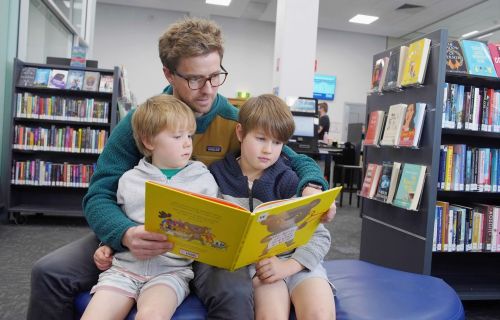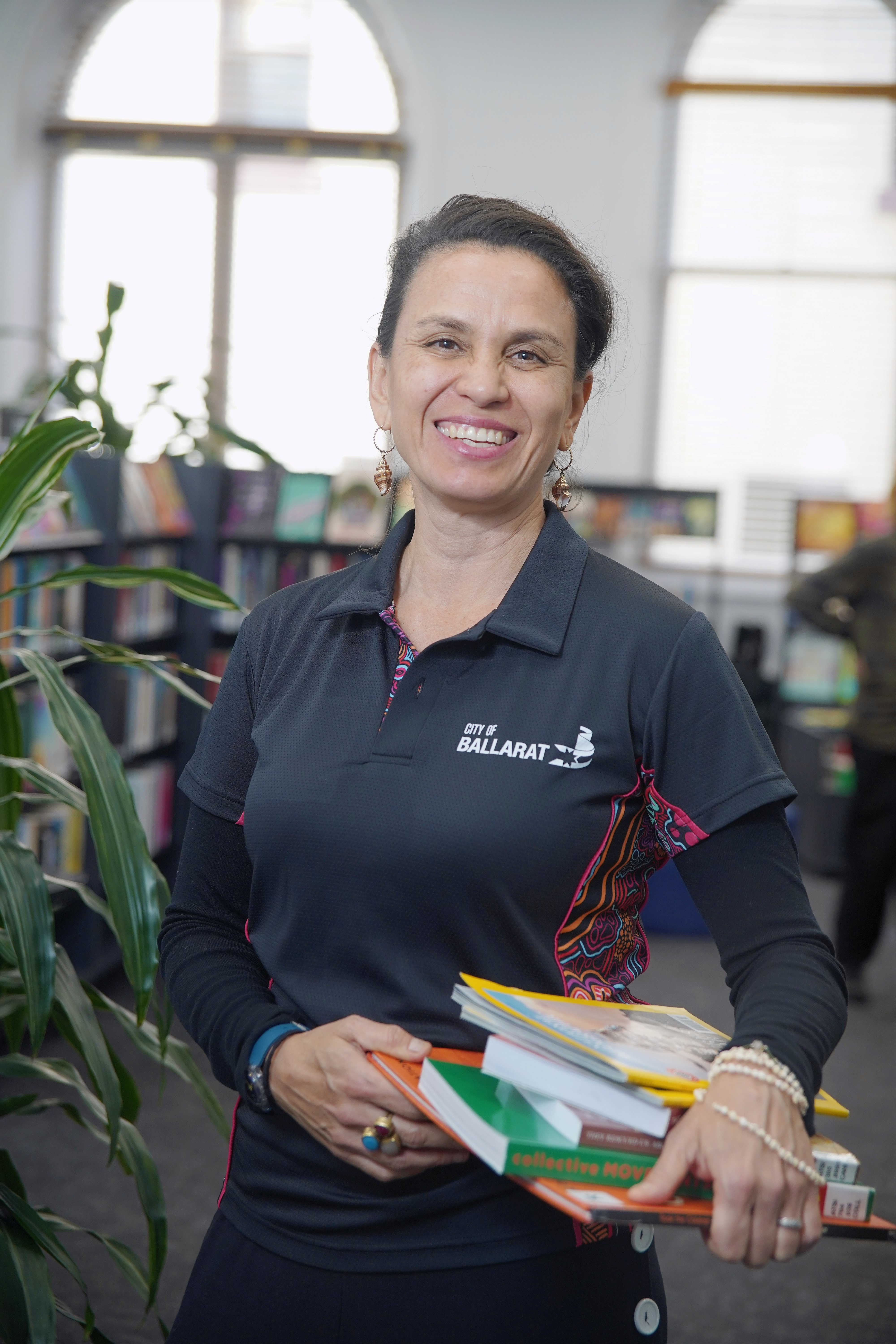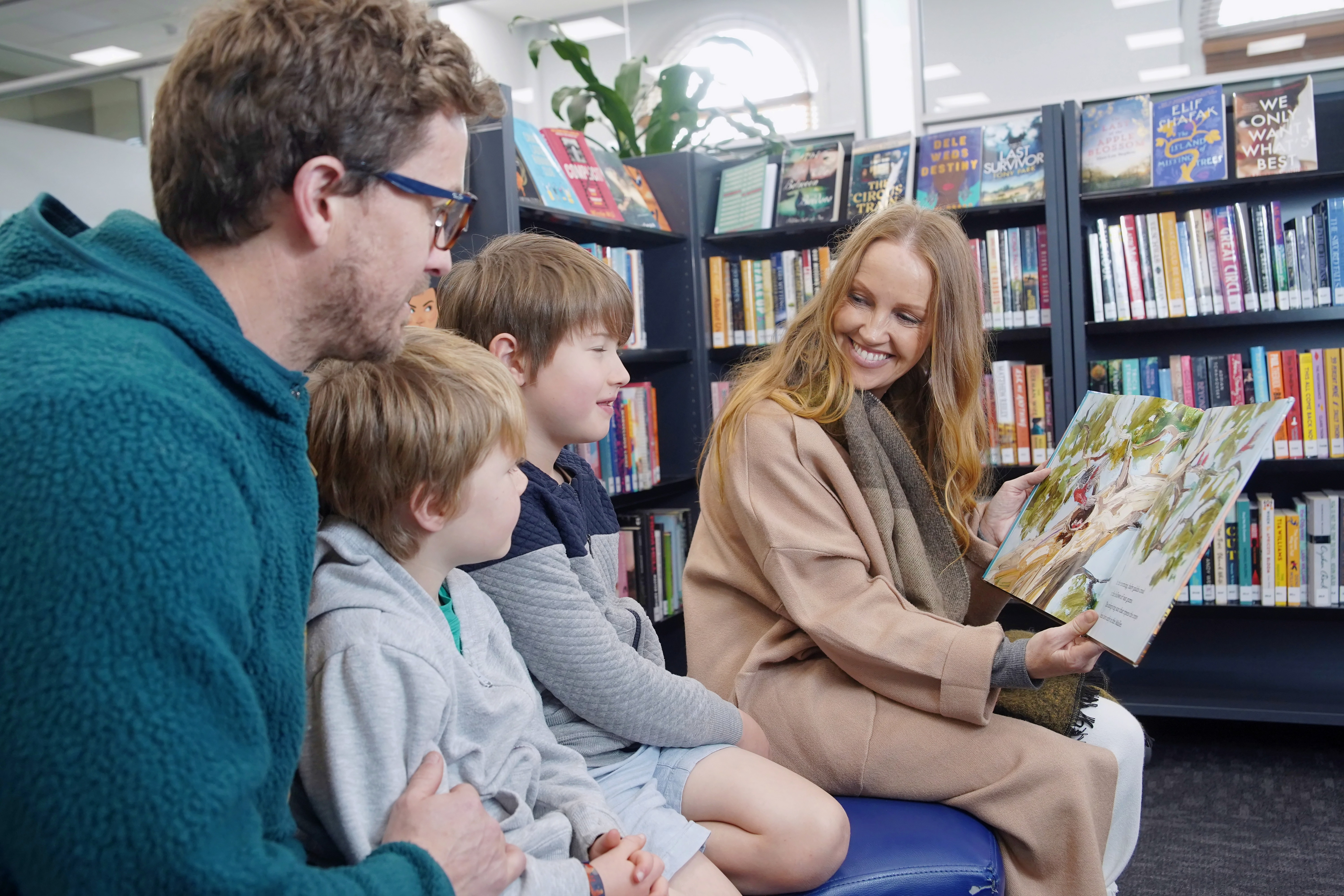Improving library collections | ourballarat spring 2023
For many First Nations people, seeing themselves and their cultural heritage reflected in literature is an important element of feeling culturally safe in places of learning, such as libraries.

On this page
That's why the City of Ballarat Libraries are celebrating UNESCO International Literacy Day with a series of events that focus on improving library collections and celebrating First Nations authors and artists.
City of Ballarat Aboriginal Community Liaison Officer Lenka Vanderboom understands the importance of representation for First Nations people.
 “Historically, we’ve walked into places of learning and not seen ourselves in any of the resources provided,” she says.
“Historically, we’ve walked into places of learning and not seen ourselves in any of the resources provided,” she says.
“Being able to walk into the Town Hall Library and see a collection of books that have authors and stories related to my personal experience as an Indigenous person makes me feel safe to bring my children.”
Fostering First Nations representation in literature is one of the reasons the City of Ballarat is hosting a series of events for UNESCO International Literacy Day that focus on First Nations literacy.
Promoting literacy
Proud Dja Dja Wurrung man and Deakin University Lecturer Dr Al Fricker - who will also be speaking at a professional training session for City of Ballarat staff and stakeholders on best practices for building culturally safe library collections - says there is an indisputable link between access to libraries and community literacy levels.
“Literacy levels have also been closely linked to employment, education, wealth and quality of life metrics,” he says.
“To deny First Nations people the opportunity to build their English literacy skills risks placing us in lifelong disadvantage.”
According to the Lowitja Institute, an estimated 40 per cent of Aboriginal and Torres Strait Island adults have minimal English literacy – this is often much higher in remote areas.
“To support First Nations literacy, access to resources that are accurate, appropriate, and authentic, as well as greater support for mother tongue learning and literacy need to be two key focuses,” Al says.

Improving libraries
An important element of the ongoing work of making libraries culturally safe spaces for all First Nations people is the process of decolonising – a process, Al says, that seeks to challenge and remove the neo-colonial systems and structures that seek to disadvantage First Nations people.
While the broader work of engaging First Nations stakeholders to co-create new systems, structures and processes that are more culturally responsive and safe for First Nations people is needed at all levels of government, a ‘lowhanging fruit’ for local governments like the City of Ballarat is improving library collections.
City of Ballarat Executive Manager Libraries and Lifelong Learning Jenny Fink says the City of Ballarat is working to create culturally safe collections.

“The City of Ballarat libraries purchases every First Nations author’s work that we can, our collection in this area ranges from picture books to works of fiction and non-fiction,” she says.
“We have a very good coverage of these works in the children’s collection and actively work on building all areas of the collection regarding these resources.”
The City of Ballarat libraries service is also committed to increasing First Nations participation in library programs.
“We work constantly to ensure that our collections reflect content about Aboriginal and Torres Strait Islander people and culture that is both respectful and historically accurate.”